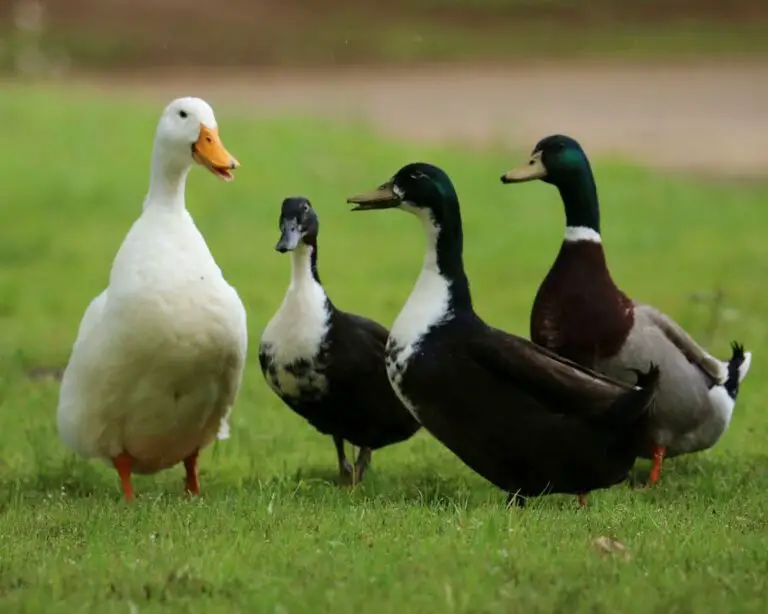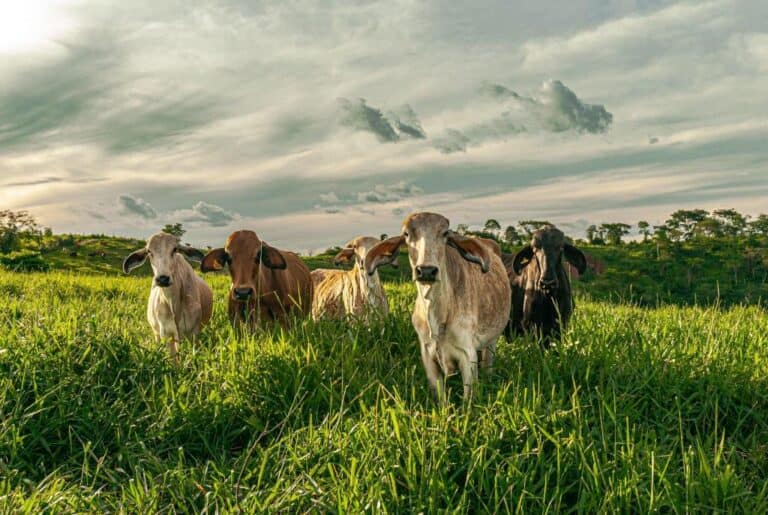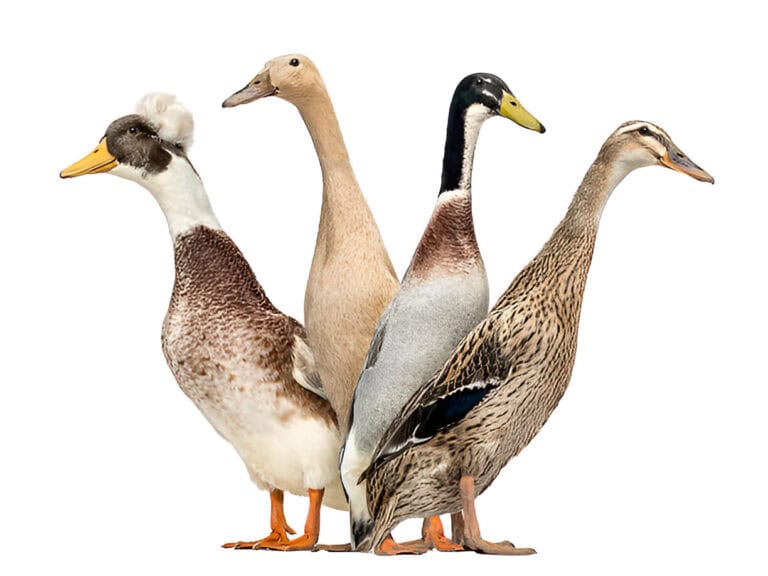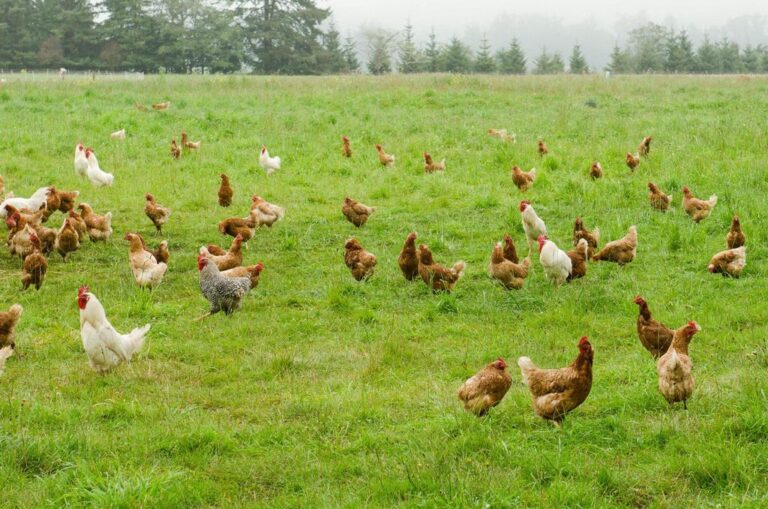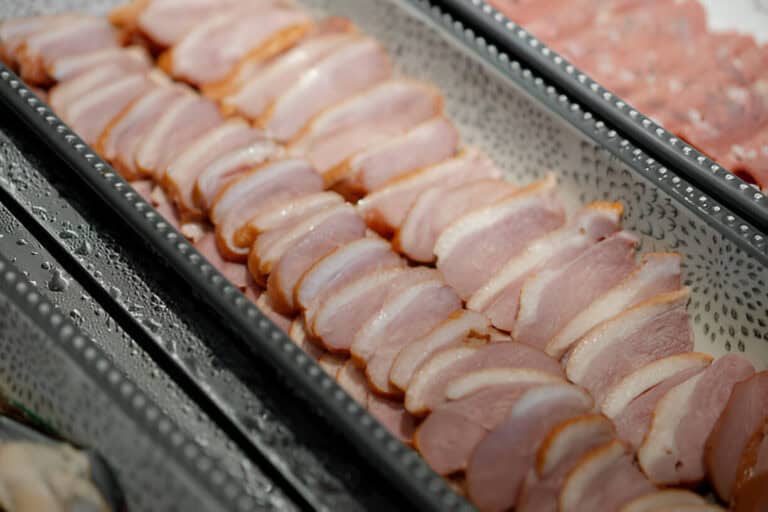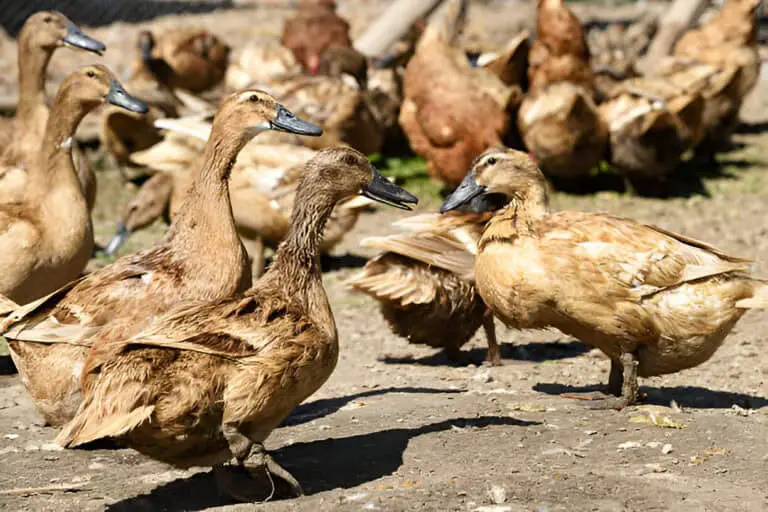12 Small Sheep Breeds for Farming and Pets: Miniature Sheep Breeds
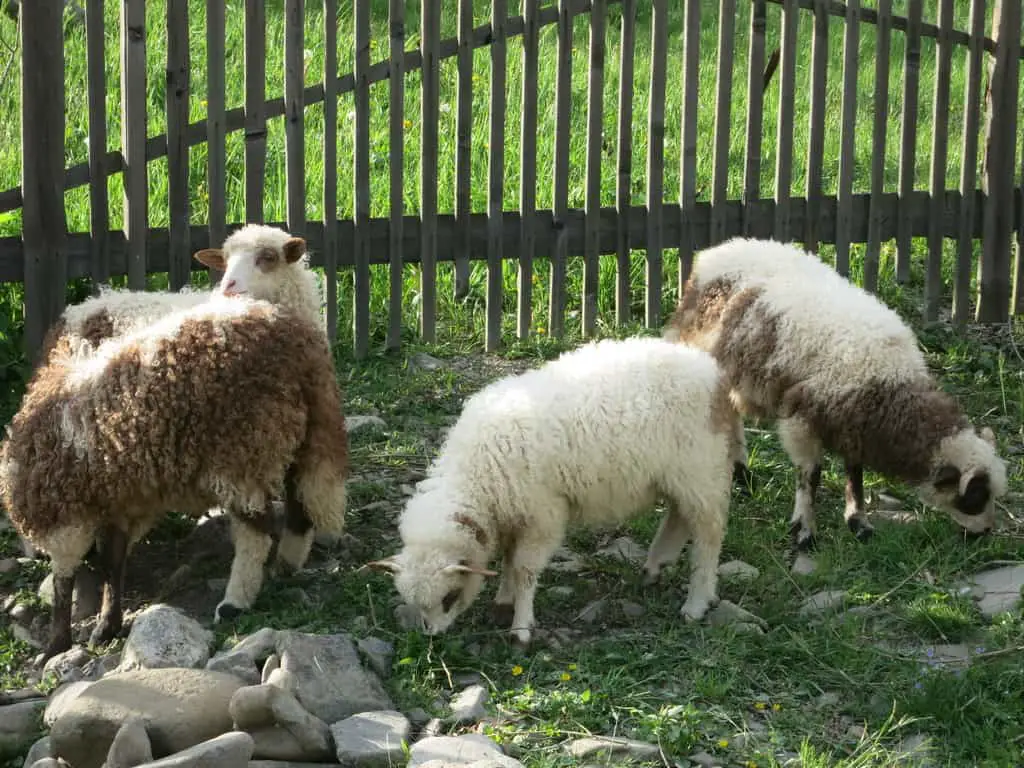
Sheep have been domesticated for thousands of years and are used for various purposes, from wool production to meat and milk. However, raising large sheep breeds can be challenging, especially for those with limited space and resources. Fortunately, there are miniature sheep breeds that are perfect for farming and even make great pets!
In this article, we’ll be exploring ten of the most popular small sheep breeds that are sure to steal your heart. From the adorable Babydoll Southdown to the hardy North Ronaldsay, these miniatures have their own unique characteristics that make them a joy to raise and care for.
Whether you’re a farmer or just looking for a new furry friend, keep reading to discover which small sheep breed might be perfect for you!
Why Small Sheep Breeds Gaining Popular
In recent years, farmers and people who are interested in livestock have become much more interested in small sheep breeds. Their ability to live on small farms and in cities, as well as their unique physical and behavioral traits, are the main reasons for this trend.
Small sheep breeds like the Babydoll Southdown, Shetland, and Harlequin are usually much smaller than their traditional counterparts. These miniature sheep can stand two to three feet tall and weigh up to 100 pounds. Due to their compact size, they require less space and resources to maintain, making them ideal for small-scale farming operations.
Furthermore, small sheep breeds are known for their gentle and docile personalities. They are easy to handle and do not require as much physical strength as larger breeds, making them perfect for families and small-scale farmers.
In addition, they can be easily trained to follow simple commands, such as coming when called or standing still for shearing.
Another reason why small sheep breeds are gaining popularity is their versatility. These breeds are raised for a variety of purposes, including wool production, meat, and as pets. They can produce high-quality wool, which craftspeople value for its durability and softness. Moreover, their meat is tender and flavorful, and many farmers raise small sheep breeds specifically for this purpose.
Taking care of and breeding small breeds of sheep is different from taking care of traditional breeds. Because they are small, they are more likely to get parasites and need to be groomed often to keep their wool in good shape.
It is also important to monitor their diets closely, as they have different nutritional requirements than larger breeds. Even though there are problems, many farmers find it rewarding and fun to raise small sheep breeds.
Characteristics of Small Sheep Breeds
Small sheep breeds have unique physical and behavioral characteristics that distinguish them from other livestock animals.
Physical Characteristics of Small Sheep
The physical characteristics of small sheep breeds are defined by their size, shape, and wool type. Unlike their larger counterparts, small sheep breeds typically weigh less than 150 pounds and stand no more than 24 inches at the shoulder.
They have shorter, finer wool that comes in various colors and textures, depending on the breed. Some small sheep breeds, such as the Shetland sheep, have multicolored wool with distinctive patterns, while others, like the Babydoll Southdown, have soft, fuzzy wool that’s prized for its warmth and softness.
Behavioral Characteristics of Small Sheep
The behavioral characteristics of small sheep breeds are also unique and vary from breed to breed. Many small sheep breeds are known for their friendly and docile nature, making them ideal for both farming and as pets.
However, some small sheep breeds can be skittish or aggressive, especially if they feel threatened or cornered. It’s essential to choose a breed that matches your temperament and skill level to ensure a successful and enjoyable experience with your small sheep.
In addition to their size and temperament, small sheep breeds also have different needs and requirements compared to their larger counterparts. They require less space and feed, making them ideal for small farms or hobbyists with limited resources. But they do need special care, such as regular shearing to keep their wool in good shape, a safe place to stay out of bad weather, and the right food to stay healthy and productive.
Small sheep breeds are also adaptable to a range of climates, making them suitable for farming in various regions. They can handle cold weather and are often used to graze on pastures that aren’t good for cows or horses. Small sheep breeds can also be trained to do specific tasks, such as guarding flocks of other animals or pulling carts, making them versatile and valuable additions to a farm or homestead.
12 Popular Small/ Miniature Sheep Breeds
There are many small sheep breeds that have gained popularity in recent years due to their unique characteristics and adaptability to small farms and urban environments. Here are twelve of the most popular small sheep breeds, each with their own distinct qualities:
1. Babydoll Southdown Sheep
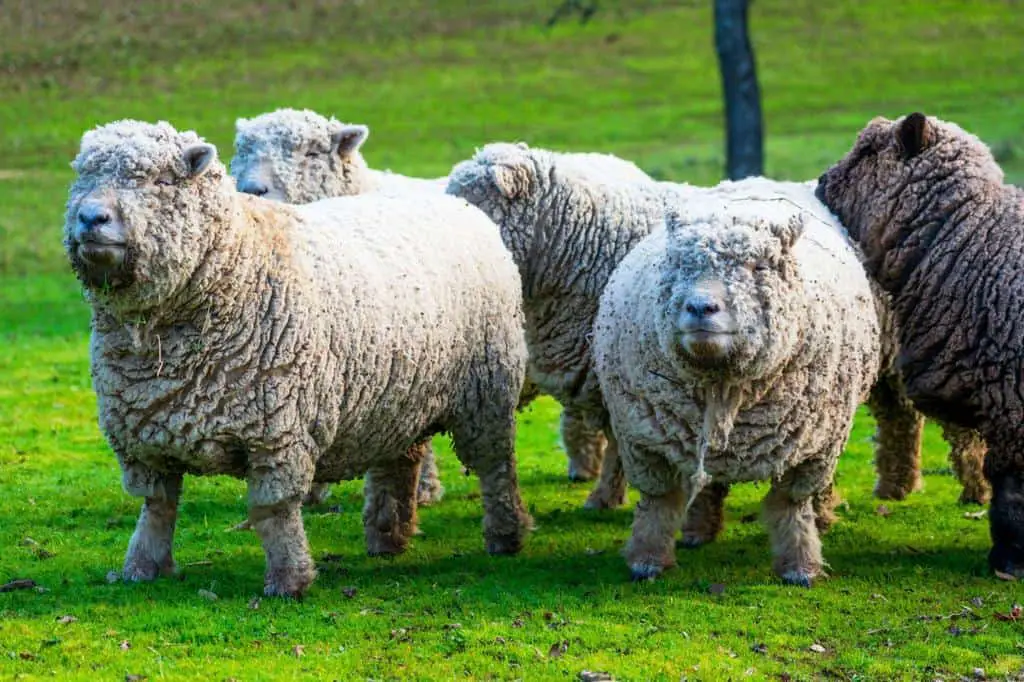
This breed is one of the smallest of all sheep breeds, with an average weight of just 60-100 pounds. They have a thick, woolly coat that makes them perfect for wool production, and their docile and friendly nature makes them popular as pets.
2. Shetland Sheep
Originating from the Shetland Islands in Scotland, this breed is small and hardy, with a weight range of 75–100 pounds. They are known for their fine wool, which comes in a range of natural colors and can be used for spinning and weaving.
3. Harlequin Sheep
This breed is a relatively new addition to the small sheep community, and is known for its striking coat pattern of black and white spots. They are a hardy breed, with a weight range of 70-90 pounds, and are often used for both wool production and meat.
4. Soay Sheep
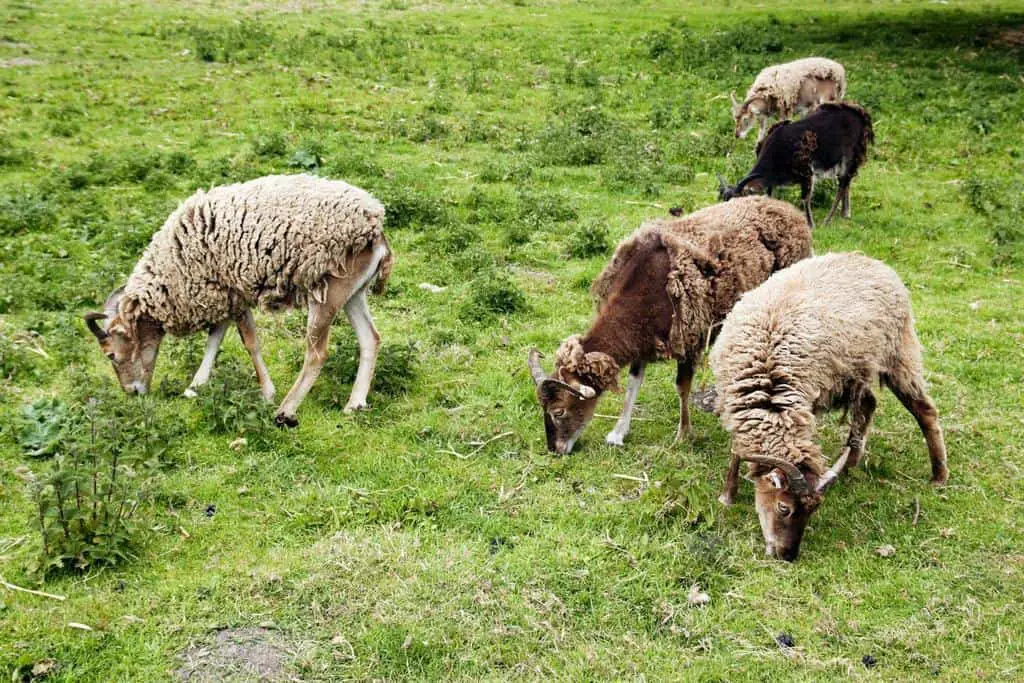
Originating from the St. Kilda archipelago off the coast of Scotland, this breed is one of the oldest in the world. They are small, with a weight range of 55-85 pounds, and are prized for their lean, flavorful meat and soft wool.
5. Cheviot Sheep
This breed originated in the Cheviot Hills of Scotland and England, and is known for its hardiness and adaptability to a wide range of environments. They are small to medium-sized, with a weight range of 120–150 pounds, and are often used for both wool and meat.
6. Clun Forest Sheep
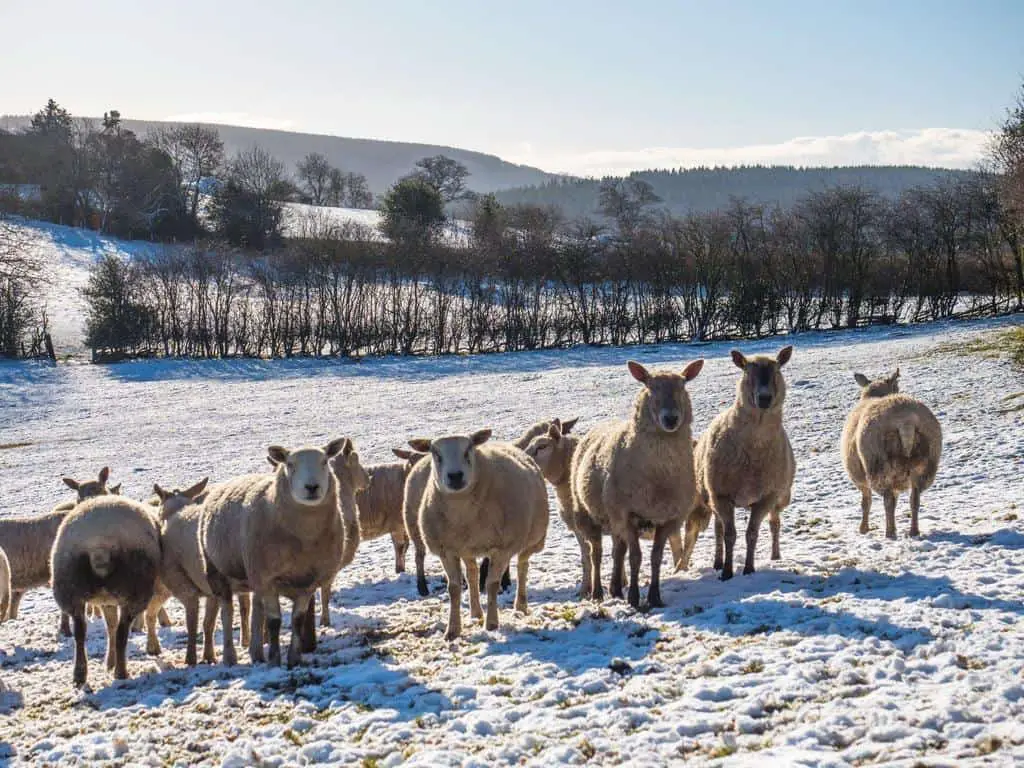
This breed originated in the Clun Forest region of England, and is known for its hardiness and excellent maternal instincts. They are small to medium-sized, with a weight range of 130-170 pounds, and are often used for both wool and meat.
7. Icelandic Sheep
This Icelandic breed is known for its hardiness and adaptability to harsh climates. They are small to medium-sized, with a weight range of 130–170 pounds, and are often used for wool production, meat production, and milk production.
8. Dorset Down Sheep
The Dorset Down is a small sheep breed that originated in England. They weigh around 110–180 pounds and stand approximately 22–28 inches tall at the shoulders. They have a short, fine woolly coat that is white or cream-colored and are known for their hardiness and adaptability.
9. Hampshire Sheep
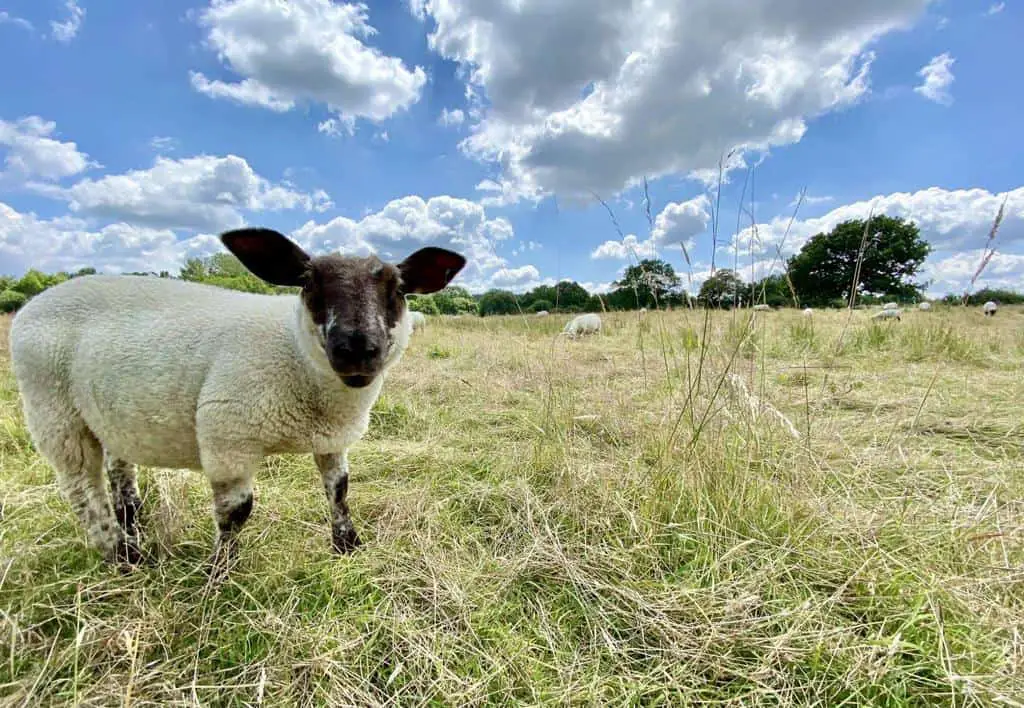
Hampshire sheep are a popular breed in the United States, known for their fast growth and large size. They weigh around 160-280 pounds and stand approximately 28-32 inches tall at the shoulder. They have a black face and legs and a white, woolly coat.
10. Kerry Hill Sheep
The Kerry Hill sheep is a small breed that originated in Wales. They weigh around 100–140 pounds and stand approximately 20–24 inches tall at the shoulders. They have a distinctive white, woolly coat with black markings around the eyes, nose, and ears.
11. North Ronaldsay Sheep
The North Ronaldsay sheep is a unique breed that originated on the North Ronaldsay island in Scotland. They weigh around 50–80 pounds and stand approximately 20–24 inches tall at the shoulders. They have a shaggy wool coat that sheds naturally in the spring and are known for their ability to survive on a diet of seaweed.
12. Jacob Sheep
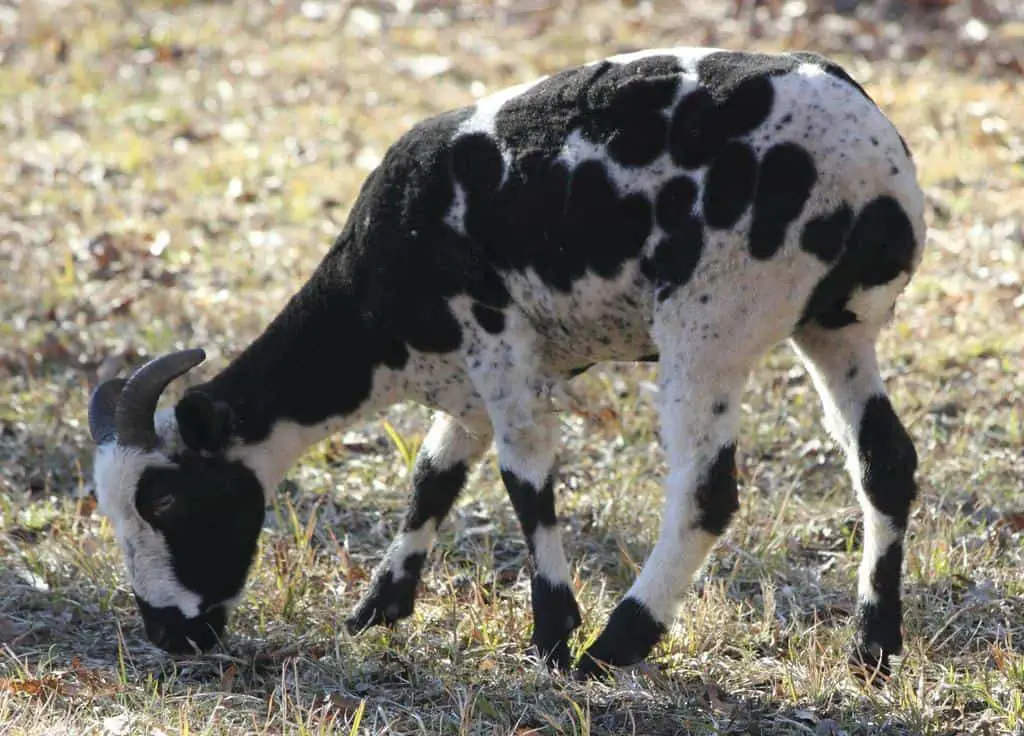
The Jacob sheep is a distinctive breed known for its multihorned appearance. They weigh around 100 to 150 pounds and stand approximately 24-32 inches tall at the shoulders. They have a woolly coat that comes in a range of colors and patterns.
Each of these small sheep breeds has its own unique qualities and characteristics, making them popular among farmers and livestock enthusiasts alike. Whether you are looking for a small, docile pet or a hardy breed for wool and meat production, there is a small sheep breed out there that is perfect for you.
Pros and Cons of Small Sheep Breeds as Farm Animals
Farmers are becoming more interested in small sheep breeds because of their unique qualities and benefits. However, like any other animal, they also have their limitations and drawbacks. Let’s explore the pros and cons of small sheep breeds in farming.
Small sheep breeds have advantages and disadvantages as farm animals. Even though their small size can be helpful in some situations, it can also limit them and make them harder to manage. Farmers who want to add small sheep breeds to their flock need to know what makes each breed different and what it needs.
| Pros | Cons |
|---|---|
| Require less grazing land | May not withstand harsh weather conditions as well as larger breeds |
| Lower feeding costs | More susceptible to predators |
| High fertility rates and ability to produce multiple offspring | Lower wool and meat production compared to larger breeds |
| Easier to handle and manage | Limited market demand for some breeds |
| Diverse range of wool and meat products | Require a larger flock to produce the same amount of wool or meat as a smaller flock of larger breeds |
Are Miniature Sheep Good Pets?
Miniature sheep are becoming increasingly popular as pets due to their docile and friendly nature, small size, and unique appearance. However, before deciding to bring a miniature sheep into your home as a pet, it is important to understand their specific needs and requirements.
Firstly, it is important to note that miniature sheep, like any other pet, require proper care and attention to ensure their health and well-being. This includes providing them with a nutritious diet, regular grooming, and appropriate veterinary care. It is also important to ensure they have adequate space to move around and exercise, as well as a shelter to protect them from extreme weather conditions.
One of the benefits of owning a miniature sheep as a pet is their gentle and affectionate nature. They are often described as friendly and social, and they enjoy spending time with their owners. They are also relatively low-maintenance pets, as they do not require as much attention as dogs or cats.
Miniature sheep can also be trained to follow simple commands, such as coming when called or standing still for grooming. They can be taught to walk on a leash, which makes them great companions for walks in the park or hikes in the countryside. They are also intelligent animals and enjoy mental stimulation, so providing them with toys and games can be a great way to keep them entertained.
In terms of their appearance, miniature sheep are often described as adorable and charming. They come in a variety of colors and patterns, and their fluffy coats make them an appealing addition to any household. They are also known for their calm demeanor, which makes them a popular choice for families with children.

